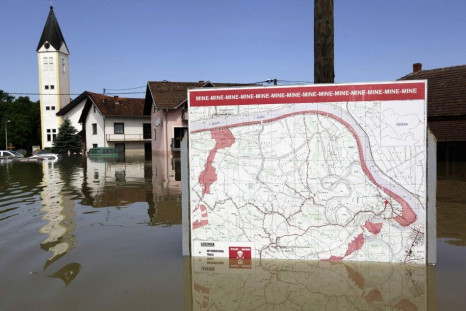Global Warming to Exacerbate Britain Summer Rains, Floods – Study
A study by the Met Office and Newcastle University published in the Nature and Climate Change journal has revealed how global warming and climate change will most definitely impact the occurrence of summer downpours and flash flooding in Britain.
Jun 03, 2014
Global Warming Alert: Al Gore Said Climate Change Could Undo Gains at Tahoe [Photos/Videos]
In 1997, Al Gore and President Bill Clinton convened the first Lake Tahoe Summit and since then great accomplishments have been there but all stands to be lost under the impacts of a warming climate.
Aug 21, 2013
Ian Somerhalder: 'Vampire Diaries' Actor to Attend 2013 Teen Choice Awards and Asheville Rally this August [PHOTOS]
It is indeed a busy month for actor Ian Somerhalder as he juggles work schedule, guest appearances and his advocacy on environmental causes. The “Vampire Diaries” heartthrob actor, who is currently busy filming Season 5 of the successful CW TV series, is expected to attend the 2013 Teen Choice Awards on August 11 and an Asheville rally on August 24.
Aug 09, 2013
Al Gore And Sale Of Current TV To Al Jazeera
In March of this year, the cable network established and sold to Al Jazeera by former vice president Al Gore .Ultimately reached a settlement with Keith Olbermann, who filed a $70 million lawsuit against his former employer after being fired in March 2012
Jul 11, 2013
Funny Valentine: 10 of Best Pickup Lines, Memes (The Must-Share 'Talk Nerdy' List)
Valentine's Day is the perfect excuse to unleash the cheesy romantic in everyone who is willing to explore their lovestruck psyche. If it helps, here are some tried and tested (scientific, if you may) pickup lines and memes from the nerds and the geeks to make your loved one smile.
Feb 14, 2013
Biomimicry: Designing the Future with Mother Nature’s Help
From robot snakes to breathable mattresses designed after honeycombs, more innovative designs are using the art and science of biomimicry. The field of biomimicry has already given consumers hundreds of products and devices that are based on nature.
Nov 21, 2011


